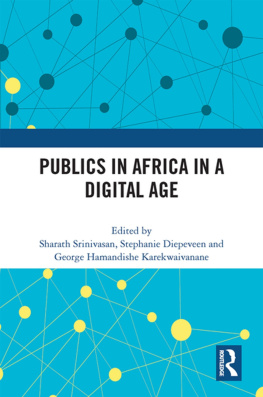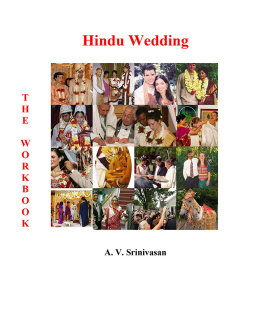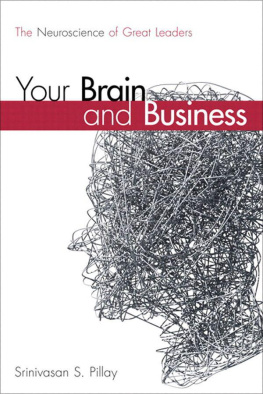Publics in Africa in a Digital Age
Across Africa, digital media are providing scholars with a reason and an opportunity for revisiting the question, and the analytical lens, of publics with new vigour and less normative baggage. This book brings together a rich set of empirically grounded analyses of the diverse digital spaces and networks of communication springing up across the Eastern African region.
The contributions offer a plural set of reflections on whether and how we can usefully think about these spaces and networks as convening publics, where citizens come together to discuss matters of common interest. The authors make clear the need to unshackle such studies from slavish acceptance of outsiders prescriptions on what constitutes desirable publics. They highlight the importance of being attentive to rapidly changing everyday realities across Africa in which people are coming together around the circulation of ideas in ways that include digital means of communications. In so doing, the contributions bring forward new ways of thinking about, through and with publics, alongside other heritages in Africanist scholarship that have continued salience. Looking outwards from the region, such different perspectives on our digitally mediated world offer theoretical novelty that advances how we think about the notion of publics and their political significance.
This book was originally published as a special issue of the Journal of Eastern African Studies.
Sharath Srinivasan is Co-Director of the University of Cambridges Centre of Governance and Human Rights, David and Elaine Potter Lecturer in the Department of Politics and International Studies and a Fellow of Kings College, Cambridge, UK.
Stephanie Diepeveen is Research Associate in the Department of Politics and International Studies at the University of Cambridge, Cambridge, UK.
George Hamandishe Karekwaivanane is Lecturer in the Centre of African Studies at the University of Edinburgh, Scotland, UK.
First published 2022
by Routledge
2 Park Square, Milton Park, Abingdon, Oxon, OX14 4RN
and by Routledge
605 Third Avenue, New York, NY 10158
Routledge is an imprint of the Taylor & Francis Group, an informa business
2022 Taylor & Francis
Chapter 3 2018 Siri Lamoureaux and Timm Sureau. Originally published as Open Access.
With the exception of Chapter 3, no part of this book may be reprinted or reproduced or utilised in any form or by any electronic, mechanical, or other means, now known or hereafter invented, including photocopying and recording, or in any information storage or retrieval system, without permission in writing from the publishers. For details on the rights for Chapter 3, please see the chapters Open Access footnote.
Trademark notice: Product or corporate names may be trademarks or registered trademarks, and are used only for identification and explanation without intent to infringe.
British Library Cataloguing-in-Publication Data
A catalogue record for this book is available from the British Library
ISBN13: 978-0-367-71526-7 (hbk)
ISBN13: 978-0-367-71527-4 (pbk)
ISBN13: 978-1-003-15244-6 (ebk)
DOI: 10.4324/9781003152446
Typeset in Minion Pro
by codeMantra
Publishers Note
The publisher accepts responsibility for any inconsistencies that may have arisen during the conversion of this book from journal articles to book chapters, namely the inclusion of journal terminology.
Disclaimer
Every effort has been made to contact copyright holders for their permission to reprint material in this book. The publishers would be grateful to hear from any copyright holder who is not here acknowledged and will undertake to rectify any errors or omissions in future editions of this book.
Sharath Srinivasan, Stephanie Diepeveen and George Hamandishe Karekwaivanane
ABSTRACT
The digital transformations taking place across the African continent present an urgent need for fresh thinking in the study of publics. This introduction lays out the impetus and contribution of this book to such a rethinking of the study of publics in Africa. Following in the footsteps of a wider body of scholarship, we draw on Africas pasts and present in order to move beyond the limiting assumptions, histories and languages that are embedded within the western scholarship on publics. We make the case that both de-westernising and capturing publics in a digital age in Africa require openness to a diversity of disciplines, approaches and questions. In addition, we explain how, collectively and individually, the chapters in this book contribute to taking up this task. Taken together, the chapters are an eye-opening collection on the unfolding practices of citizens convening and participating in discussions using both newer and older media and communication platforms across Somalia, Ethiopia, Sudan, Uganda, Tanzania, Kenya, Rwanda and Zimbabwe. Contributions cover diverse disciplinary perspectives and empirical cases that investigate publics convening around digital platforms from WhatsApp, Twitter and Facebook to weblogs and dating apps on mobile phones. We see this endeavour of examining the complex and dynamic digital transformations across Eastern Africa as part of a crucial scholarly turn in which the study of African society and politics helps us to rethink ideas and concepts that have heritages elsewhere, and to understand them in a new light.
It is time to engage seriously in the study of publics in Africa. The impetus for this is not a reprise of the not yet, that awkward and impatient imposition of foreign concepts upon African histories and political realities. Rather, the impetus comes from digital transformations occurring across the continent that are in urgent need of fresh thinking and different understanding. Networked citizens discussions take place on WhatsApp about the performance of newly devolved county governments in Kenya. Charismatic figures are developing strong follower-ships through gossip websites and online tabloids in Rwanda. Surreptitious election campaigning and far-reaching debate unfold through Facebook pages in Zimbabwe and Zanzibar. There is an efflorescence of #hashtag commentary, satire and the rise of a Twitterati. The cacophony of shared voices made possible by the continents rapid growth in mobile and internet connectivity at first seems beguiling. Beyond the African continent, these disruptions of a digitally networked society have challenged cherished formulations of what publics are and should be. The digital realm is emerging as fragmented, transient, unstable and unreliable. Our digital age appears to be prone to distorting the public world with its capacities for filter bubbles, echo chambers, fake news, bots and hacks. This is no agora, no polis. There are no rational coffee house deliberations in earshot, no laudable unifying imaginaries through the circulation of unchanging printed texts. Even mediated radio and television broadcasts to mass audiences, with all their limitations for public discussion, appear to be an endangered species of modern collective experiences. With western teleologies in trouble, Africas putative not yet no longer matters, if it ever did at all.
In Africa, digital media are providing scholars with a reason and opportunity for revisiting the question, and the analytical lens, of publics with new vigour and less normative baggage. This book presents empirically grounded analyses of the diverse digital spaces and networks of communication springing up across the Eastern African region. The chapters offer a plural set of reflections on whether and how we can usefully think about these spaces and networks as convening publics, where citizens come together to discuss matters of common interest. The authors make clear the need to unshackle such studies from slavish acceptance of outsiders prescriptions on what constitutes desirable publics. They highlight the importance of being attentive to rapidly changing everyday realities across Africa in which people are coming together around the circulation of ideas in ways that include digital means of communications. In so doing, the contributions bring forward new ways of thinking about, through and with publics, alongside other heritages in Africanist scholarship that have continued salience. Looking outwards from the region, such different perspectives into our digitally mediated world offer theoretical novelty that furthers how we think about the notion of publics and their political significance.













